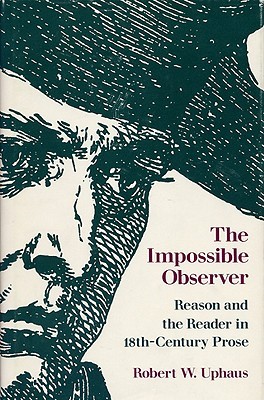
- We will send in 10–14 business days.
- Author: Robert W Uphaus
- Publisher: University Press of Kentucky
- ISBN-10: 081311389X
- ISBN-13: 9780813113890
- Format: 14.2 x 21.6 x 1.8 cm, hardcover
- Language: English
- SAVE -10% with code: EXTRA
Reviews
Description
Rationality, objectivity, symmetry: were these really principles urged and exemplified by eighteenth-century English prose? In this persuasive study, Robert W. Uphaus argues that, on the contrary, many of the most important works of the period do not actually lead the reader into a new awareness of just how problematical, how unsusceptible to reason, both the world and our easy assumptions about it are.
Uphaus discusses a broad range of writers -- Swift, Defoe, Mandeyville, Richardson, Fielding, Sterne, Johnson, and Godwin -- showing that beneath their variety lies a fundamentally similar challenge, addressed to the critical procedure which assumes that the exercise of reason is a sufficient tool for an understanding the appeal of imaginative literature.
EXTRA 10 % discount with code: EXTRA
The promotion ends in 17d.05:48:36
The discount code is valid when purchasing from 10 €. Discounts do not stack.
- Author: Robert W Uphaus
- Publisher: University Press of Kentucky
- ISBN-10: 081311389X
- ISBN-13: 9780813113890
- Format: 14.2 x 21.6 x 1.8 cm, hardcover
- Language: English English
Rationality, objectivity, symmetry: were these really principles urged and exemplified by eighteenth-century English prose? In this persuasive study, Robert W. Uphaus argues that, on the contrary, many of the most important works of the period do not actually lead the reader into a new awareness of just how problematical, how unsusceptible to reason, both the world and our easy assumptions about it are.
Uphaus discusses a broad range of writers -- Swift, Defoe, Mandeyville, Richardson, Fielding, Sterne, Johnson, and Godwin -- showing that beneath their variety lies a fundamentally similar challenge, addressed to the critical procedure which assumes that the exercise of reason is a sufficient tool for an understanding the appeal of imaginative literature.


Reviews